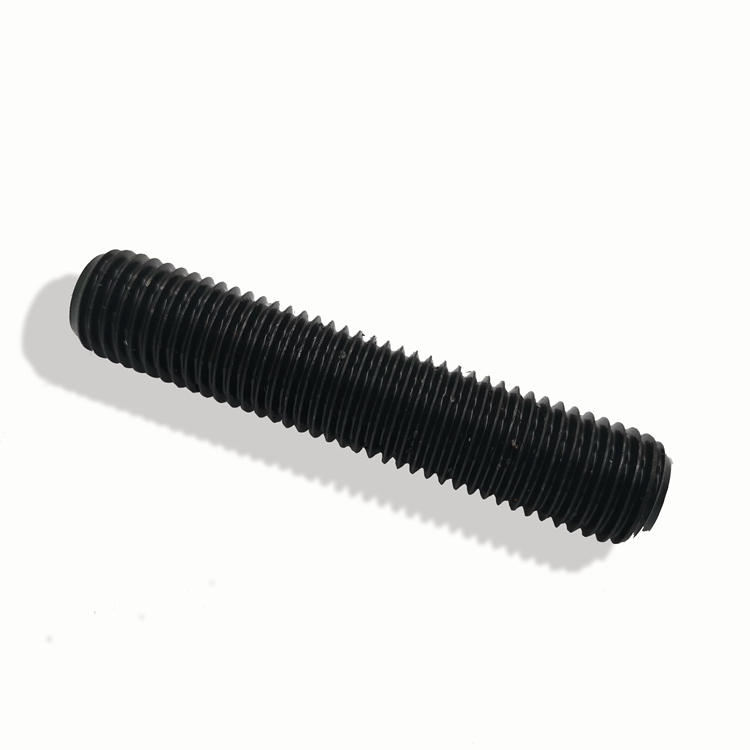stud bolt a193
Dec . 01, 2024 23:48 Back to list
stud bolt a193
Understanding Stud Bolt A193 A Comprehensive Overview
In the realm of industrial fastening, stud bolts play an essential role, particularly within applications that demand high strength and resistance to various environmental factors. Among the numerous types of stud bolts, A193 stands out due to its unique specifications and applications. In this article, we will explore the characteristics, materials, standards, applications, and benefits of using ASTMA193 stud bolts.
What is a Stud Bolt?
A stud bolt is a long, threaded rod with no head on one end, designed to be used with nuts on both ends. This design allows for a more secure and adjustable fastening method, especially in demanding environments. Stud bolts are typically found in applications where space is tight or where a strong, rigid connection is critical.
Overview of A193 Standard
ASTM A193 is a specification for alloy-steel and stainless steel bolting materials for high-temperature or high-pressure service and other special applications. The specification encompasses a range of grades, including B7, B8, and B16, each with specific mechanical properties and temperature capabilities.
- Grade B7 This is the most commonly used grade and is made up of chromium-molybdenum alloys, providing high tensile strength and is suitable for elevated-temperature service. - Grade B8 This grade consists of stainless steel and is usually more resistant to corrosion than the B7 grade. It is often utilized in environments exposed to harsh chemicals and corrosion. - Grade B16 A modification of Grade B8, this grade combines both austenitic stainless steel with high strength, making it suitable for applications requiring both corrosion resistance and high mechanical strength.
Material Composition
stud bolt a193

The materials used for A193 stud bolts are critical in determining their performance. Grade B7 is typically made from alloy steel, containing chromium and molybdenum, which provide enhanced strength and toughness. Conversely, Grade B8 is made from stainless steel, primarily austenitic alloys, which are known for their excellent corrosion resistance.
Applications of A193 Stud Bolts
Stud bolts meeting ASTM A193 standards are widely used in various industrial applications. Some common areas of application include
1. Petrochemical Industry With their robustness and resistance to high temperatures and pressures, A193 stud bolts are prevalent in refinery installations, pipelines, and reactors. 2. Power Generation These bolts are utilized in power plants, especially in turbine and boiler applications, where high strength and resistance to thermal fatigue are crucial. 3. Marine Applications Stud bolts are also employed in marine environments, where they must withstand harsh conditions, including saltwater corrosion. 4. Construction In structural projects requiring strong, reliable connections, A193 stud bolts are commonly used for girders, beams, and columns in heavy construction.
Benefits of Using A193 Stud Bolts
1. High Strength One of the primary advantages of A193 stud bolts is their high tensile strength, capable of withstanding extreme conditions without failure. 2. Corrosion Resistance Especially in the case of stainless steel grades like B8, these bolts provide excellent resistance to corrosion, extending the lifespan of installations. 3. Versatility Different grades of A193 fasteners make them suitable for various applications, from high-pressure and high-temperature settings to corrosive environments. 4. Reliability The sturdy construction of stud bolts ensures that they maintain tightness over time, reducing the risk of joint failure or leakage.
Conclusion
In summary, A193 stud bolts represent a cornerstone in fastener technology for demanding industrial applications. Their unique composition, combined with rigorous manufacturing standards, ensures high performance in conditions that challenge other types of fasteners. Understanding the characteristics and applications of A193 stud bolts is essential for engineers, procurement professionals, and maintenance personnel involved in industries where joint integrity is paramount. By selecting the appropriate grade and employing A193 stud bolts in their designs, companies can ensure the longevity and reliability of their structures and systems.
Latest news
-
High-Quality Panel Stud Bolt Reliable Panel Stud Bolt Factory & Suppliers
NewsJul.08,2025
-
High-Precision Fine Thread Locknuts Manufacturer & Supplier Custom Solutions
NewsJul.08,2025
-
PH Imperial Stud Bolt – High Strength Fasteners from Leading Supplier & Factory
NewsJul.07,2025
-
High-Quality Allen Wrench Bolts Leading Factory, Company & Suppliers
NewsJul.07,2025
-
Wholesale Ball Stud Bolt - High Quality Supplier & Factory Price Reliable Wholesale Ball Stud Bolt Company
NewsJul.06,2025
-
High-Strength Alloy Bolts Manufacturer & Supplier Quality Alloy Fasteners Factory
NewsJul.06,2025
